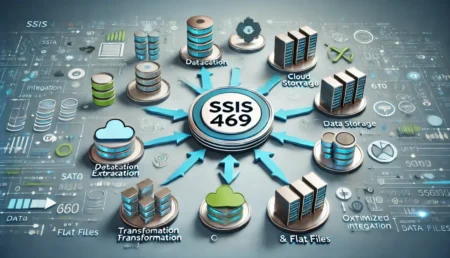In today’s data-driven world, Powers health data analysts play a vital role in transforming the healthcare landscape. By collecting, processing, and interpreting critical health data, these professionals provide actionable insights that help improve patient care, optimize operational efficiency, and drive strategic decision-making. As healthcare systems continue to evolve, the demand for skilled health data analysts is higher than ever, reflecting the essential need for data-driven approaches in every facet of healthcare. In this comprehensive article, we’ll explore the responsibilities, qualifications, tools, and impact of health data analysts in modern healthcare.
What is a Powers Health Data Analyst?
A Powers health data analyst is a professional who uses statistical analysis, data management, and visualization techniques to extract meaningful insights from healthcare data. These insights help healthcare providers make evidence-based decisions, streamline operations, and improve patient outcomes. Health data analysts often work with vast datasets, including patient records, treatment histories, medical imaging data, and insurance claims, making their role indispensable in guiding healthcare organizations toward a more data-centric approach.
Core Responsibilities of Health Data Analysts
Health data analysts engage in various activities, ranging from data collection to reporting, all centered on leveraging data for informed decision-making. Below are some of their primary responsibilities:
- Data Collection and Management: Powers health data analyst collect data from multiple sources, including electronic health records (EHR), medical devices, and insurance claims. They ensure the integrity and accuracy of data to create a reliable foundation for analysis.
- Data Cleaning and Preparation: Raw data often contain inconsistencies or errors. Health data analysts clean and preprocess this data, transforming it into a structured format that can be analyzed effectively.
- Statistical Analysis: Using advanced statistical techniques, health data analysts identify trends, correlations, and patterns in the data. This analysis is fundamental for deriving actionable insights that can impact patient care and operational processes.
- Data Visualization and Reporting: Presenting data in a digestible format is crucial. Health data analysts create dashboards, charts, and reports to convey complex information clearly and effectively to stakeholders, including healthcare providers, administrators, and policymakers.
- Predictive Analytics: Many Powers health data analyst specialize in predictive modeling, where they use historical data to forecast future events, such as patient admissions, risk factors for diseases, and resource allocation.
- Regulatory Compliance and Data Security: Health data analysts ensure that All Data practices comply with healthcare regulations like HIPAA, safeguarding patient privacy and data security.
Why Health Data Analysts are Vital in Healthcare
Enhancing Patient Care and Outcomes
One of the primary goals of health data analytics is to improve patient outcomes. By analyzing data trends related to patient treatments, diagnoses, and follow-up care, health data analysts can help identify the most effective treatment plans and reduce adverse events. Predictive analytics can also aid in early intervention, helping to reduce readmission rates and prevent disease progression.
Reducing Operational Costs
Data-driven decision-making enables healthcare facilities to identify inefficiencies, optimize resource allocation, and reduce waste. By analyzing patient flow, staff productivity, and resource utilization, health data analysts help organizations streamline operations, ultimately lowering operational costs.
Supporting Public Health Initiatives
Health data analytics extends beyond individual patient care to support broader public health initiatives. By analyzing trends in health data, analysts can identify emerging health threats, track the spread of diseases, and inform public health policies. This was particularly evident during the COVID-19 pandemic when data analytics played a pivotal role in tracking infection rates and guiding government responses.
Driving Strategic Planning and Decision-Making
Health data analysts contribute to the strategic planning process by providing evidence-based insights. This information helps healthcare executives make informed decisions about expanding services, investing in technology, or restructuring operations, ensuring that these choices are aligned with data-supported forecasts.
Key Skills and Qualifications for Health Data Analysts
To succeed in this role, health data analysts need a unique blend of technical expertise, analytical skills, and healthcare knowledge. Here are some of the key qualifications and skills:
- Educational Background: Most health data analysts have at least a bachelor’s degree in fields such as health informatics, data science, statistics, or a related discipline. Advanced roles often require a master’s degree or certification in health data analytics.
- Technical Skills: Proficiency in data management software (such as SQL, SAS, and Excel) and analytics tools (like R, Python, and Tableau) is essential. Health data analysts should also be familiar with EHR systems, as they are frequently used in healthcare settings.
- Analytical and Statistical Knowledge: A strong understanding of statistical methods and data modeling is crucial. Health data analysts should be capable of conducting regression analysis, hypothesis testing, and other statistical procedures.
- Healthcare Knowledge: Familiarity with healthcare terminology, regulations (like HIPAA), and healthcare standards is important. Health data analysts need to understand the context of the data they work with to provide meaningful insights.
- Problem-Solving Skills: Health data analysts need strong problem-solving skills to address complex issues related to data accuracy, data integration, and reporting.
- Communication Skills: The ability to convey technical findings to non-technical stakeholders is vital. Health data analysts should be adept at data visualization and presenting findings clearly.
Tools and Technologies Used by Health Data Analysts
Health data analysts rely on a variety of tools to process, analyze, and visualize healthcare data effectively. Below are some of the commonly used tools:
- Statistical Software: Tools like R, SAS, and Python are used for data analysis and predictive modeling.
- Data Visualization Tools: Tableau, Power BI, and Google Data Studio are essential for creating interactive dashboards and visual reports.
- Database Management Systems: SQL, Oracle, and Microsoft Access allow analysts to manage and query large datasets efficiently.
- EHR Systems: Familiarity with EHR platforms such as Epic, Cerner, and Meditech is crucial, as these systems store patient data and other critical health information.
Challenges Faced by Health Data Analysts
Data Privacy and Security
One of the most significant challenges in health data analytics is ensuring data privacy and security. Analysts must follow stringent protocols to comply with regulations like HIPAA, protecting patient data from unauthorized access or breaches.
Data Integration and Quality
Healthcare data is often fragmented, residing in various systems and formats, which can complicate analysis. Health data analysts must integrate data from disparate sources and ensure its quality before analysis, a process that can be time-consuming and complex.
Keeping Up with Technological Advancements
Healthcare technology is evolving rapidly, with advancements in artificial intelligence, machine learning, and predictive analytics. Health data analysts must continually upskill to stay proficient in these emerging technologies and leverage them effectively in their roles.
Future of Health Data Analytics
The future of Powers health data analyst is promising, with advancements in artificial intelligence, machine learning, and data interoperability poised to revolutionize the field. As healthcare organizations continue to adopt digital solutions, the role of health data analysts will only grow, with more emphasis on predictive analytics, precision medicine, and real-time data analysis. Emerging technologies will allow analysts to provide more accurate insights, enabling healthcare providers to deliver highly personalized patient care and anticipate healthcare needs more effectively.
Time Squares News guides you through the latest trends and stories, providing valuable information and perspectives on current events and more.










